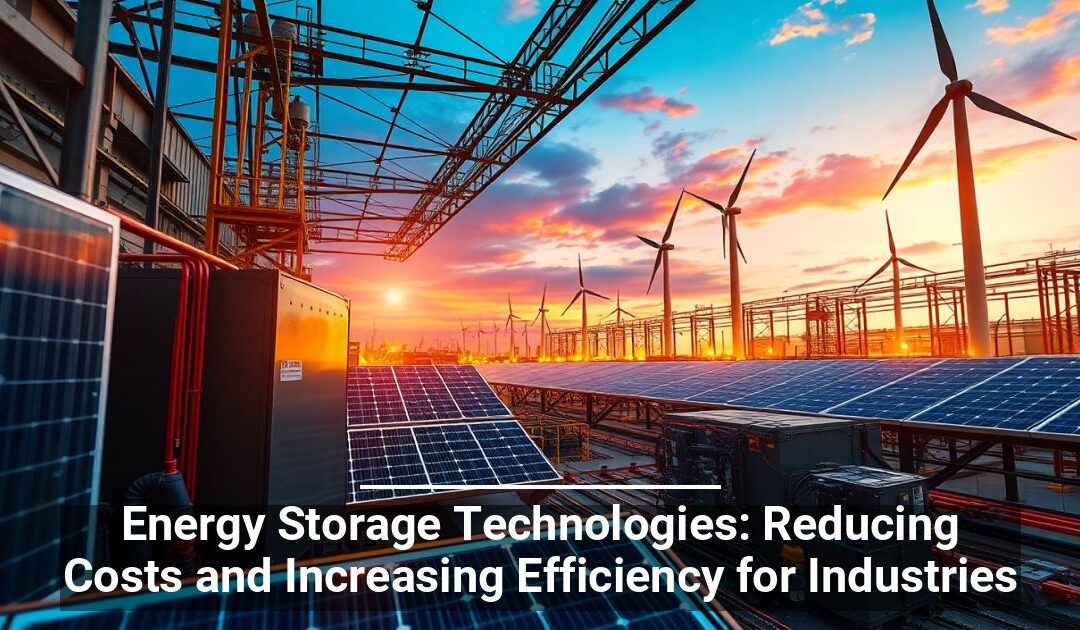 Managing power consumption in industrial enterprises is critical due to soaring costs and an increased focus on sustainability. As more companies integrate renewable power sources like solar and wind into their energy strategies, the need for more advanced energy storage technologies is also rising.
Managing power consumption in industrial enterprises is critical due to soaring costs and an increased focus on sustainability. As more companies integrate renewable power sources like solar and wind into their energy strategies, the need for more advanced energy storage technologies is also rising.
What Is Energy Storage?
Wind and solar energy are, by far, the least expensive sources of electricity, and there are virtually unlimited supplies of both. There’s so much that windmills and solar panels often produce significantly more power than is necessary to support even in the busiest industrial environment.
Rather than allow that energy to go to waste, energy storage technologies collect the excess power during reduced demand. When the demand increases, that power can help meet those needs. Although many people are familiar with lithium-ion or flow batteries for storing excess renewable energy, industrial enterprises are also turning to more advanced energy storage solutions, including flywheel, compressed air, thermal, and pumped hydro energy storage.
The Advantages of Storing Energy
How does storing energy during reduced demand and releasing it when demand increases benefit businesses?
Increased Energy Efficiency
Storing extra power reduces waste and increases power grid efficiency by allowing it to adjust to demand fluctuations easily. Using stored energy prevents switching to less efficient and more expensive power generation methods.
Businesses can also use storage to optimize their energy consumption. By monitoring and analyzing energy usage patterns in real-time, your company can be more strategic in finding effective ways to reduce consumption.
Reduced Costs
Maintaining a supply of stored power and discharging it during peak usage periods when electricity rates are highest can significantly reduce electricity expenses. Your company is less vulnerable to wild swings in energy prices, which helps keep costs in check.
Improved Resilience
Power outages during periods of extreme demand will disrupt operations. Energy storage technologies help prevent this.
Storing energy also helps address the issue of fluctuating energy production. When weather conditions change, power production can drop dramatically. Charging batteries or other storage systems during periods of high output ensures a steady and reliable power source without switching to more expensive sources.
Selecting Energy Storage Technology
Choosing the right energy storage technology can significantly impact your efforts. Factors like storage capacity, ease of integration with existing infrastructure, cost, scalability, and power rating affect how well different options work within your business. It’s also important to align the technology with local and industry regulations and incentives to ensure you get the most from the investment.
Storing excess renewable power can be a big step in your company’s efforts to improve sustainability and move toward cleaner energy. Energy storage systems will become increasingly common, so now’s a great time to consider the potential for a more efficient approach to the future.


